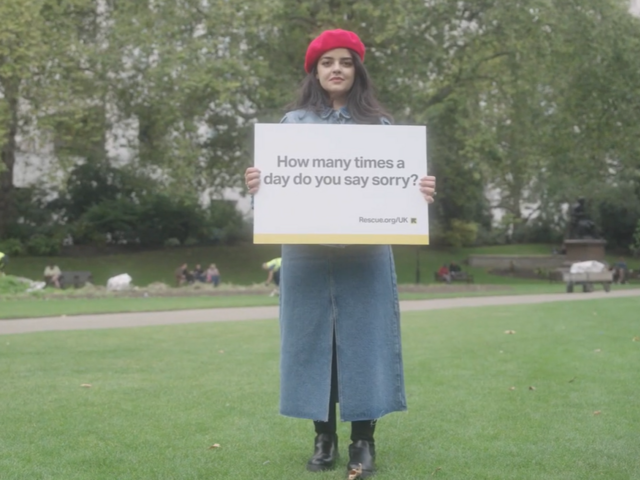For anyone who has spent any time in the UK, they'll quickly notice some behaviours and quirks that make British culture unique.
For refugees and people seeking asylum, adjusting to this completely new culture can be a challenge. That’s why the International Rescue Committee offers support through its programmes which provide refugees with the tools they need to integrate.
In a bid to find out more about British culture, Saghar Khalid - who is a journalist and refugee from Afghanistan - braved the streets of London to ask the public what they think.
Why do British people talk about the weather?
Why do Brits seem to always be talking about the weather? Explaining the week's forecast or commenting on today's rain/sun/clouds is nothing short of a national pastime.
This quirk stems partly from Britain's notoriously unpredictable climate, but it's also an icebreaker that creates some common ground and allows everyone to kick off a conversation.
According to a 2024 study, the average British person actually spends the equivalent of five months of their life talking about the weather.
The survey of 2,000 adults, commissioned by Warner Bros., found the topic comes up five times a day on average, with people spending around nine minutes each day - or an hour every week - discussing the temperature.
The average adult will also check the weather forecast 11 times a week via an app, the TV or Googling it.

What is British sarcasm?
Dry sarcastic humour is something British people take pride in. Sarcasm is embraced as a form of jokey dialogue across the UK, as one interviewee told Saghar: "Brits are known for sarcastic humour, deadpan humour."
Another Brit explained how sarcasm works, as he said: “It would be like ‘nice hat’, when evidently you don’t think that’s true…”
According to the Cambridge dictionary, sarcasm is: “the use of remarks that clearly mean the opposite of what they say, made in order to hurt someone's feelings or to criticise something in a humorous way.”
Why do Brits keep saying sorry?
‘Sorry’ might just be the most overused word by people in the UK. In fact, a previous survey of more than 1,000 Brits found that the average person says ‘sorry’ around eight times per day.
The study, commissioned by chocolate biscuit bar PiCKUP!, found that 88% of us regularly say sorry for things that aren't their fault, and that one in eight people apologise up to 20 times a day.
“The readiness of the English to apologise for something they haven’t done is remarkable, and it is matched by an unwillingness to apologise for what they have done,” wrote Henry Hitchings in his book ‘Sorry!: The English and their Manners.’

How much tea do we really drink?
One of the quintessentially British customs a lot of people are aware of, is how much everyone loves a cup of tea.
The word “cuppa” is commonly used to refer to a cup of tea, as when you pronounce the expression “cup of tea”, it sounds more like “cuppa tea”.
While drinking tea originated in Asia, a study by tea experts at Cartwright and Butler, revealed that on average, Brits drink 2.7 cups a day.
The poll also found that 44% drink over four cups of tea a day, while 41% admitted they can’t function without tea or coffee. Of the 1,000 people asked, only 13% of those surveyed said they don’t drink a cup of tea a day at all.
Adapting to a new culture
For refugees like Saghar, understanding these cultural nuances is crucial for integration. The International Rescue Committee (IRC) offers support through its programmes which provide refugees with the tools and knowledge needed to successfully integrate. These include orientation services to help new arrivals navigate British systems, translation services, peer mentoring and wellbeing support.
What is the International Rescue Committee?
The International Rescue Committee (IRC) helps people affected by humanitarian crises to survive, recover and rebuild their lives. We deliver lasting impact by providing health care, helping children learn, and empowering individuals and communities to become self-reliant, always with a focus on the unique needs of women and girls.
Helping refugees rebuild in the UK
In addition to helping those in crisis and conflict zones, the IRC also helps refugees in the UK, where we provide orientation programming and employment support to help people recover and start to rebuild their lives. Read more about the International Rescue Committee in the UK.



